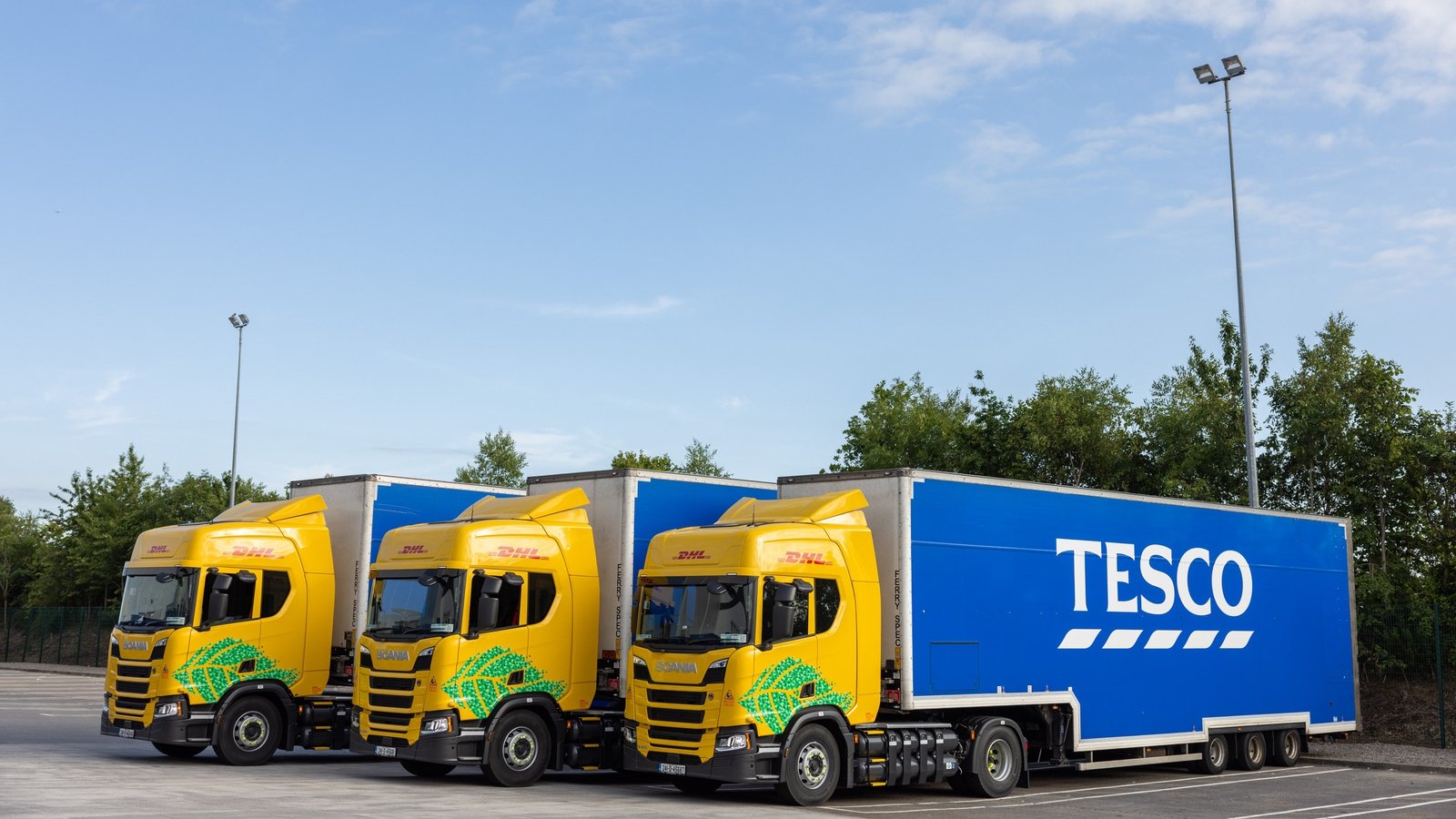Bussiness
Tesco rolls out 50 biomethane trucks

Tesco Ireland has taken delivery of 50 biomethane fuelled trucks which will operate across its distribution network.
Biomethane, a renewable energy source produced from organic waste, offers a cleaner alternative to traditional fossil fuels.
The new trucks are part of the retailer’s strategy to reduce its carbon footprint and enhance the environmental sustainability of its operations.
The trucks will replace 50 diesel units, cutting down tailpipe carbon emissions by up to 90%.
The biomethane fleet will be operated by Tesco’s transport partner DHL and the trucks will be used to transport produce to stores from its distribution centres in Dublin.
“Our network is one of the most sophisticated distribution networks in the country,” said Tesco Ireland Retail & Distribution Director, Ger Counihan.
“More than 1,800 journeys are made from our distribution centres every week to our 177 stores. We have worked hard with DHL to prepare for the switch from diesel to biomethane trucks, and this move to cleaner energy will reduce the carbon emissions created by this fleet considerably,” he said.
The renewable fuel for the trucks will come from Irish and European anaerobic digestion plants, and the trucks will refuel at the newly opened BioCNG refuelling station operated by Flogas at nearby St Margaret’s in north Dublin.
Each truck has a range capacity of 700 kms on a full tank of Biomethane Gas which allows the Tesco business to reach any of its 177 stores and return without refuelling.
Each truck will complete an average of 15 to 20 truckloads of store deliveries across the country each week from Letterkenny to Kerry to Dublin.
DHL Supply Chain’s David O’Neill said it was an important project to demonstrate the role biomethane can play in Irish commercial transport.
“This project is a great example of our Green Transport Policy, guiding the transition of 30% of our own fleet to a green alternative by the end of 2026, an important enabler in achieving our sustainability goals,” he said.










